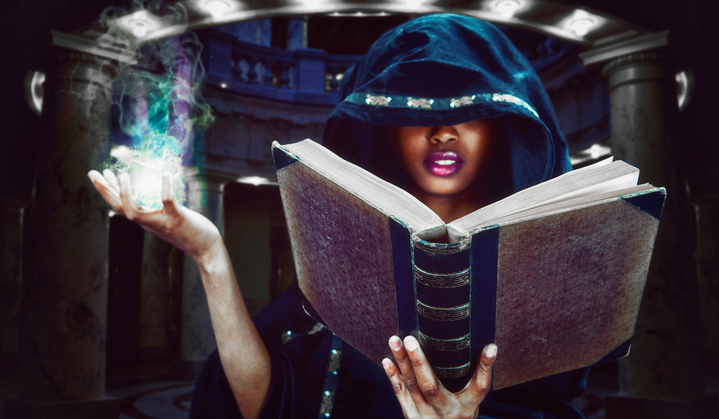
Halloween is right around the corner, and to celebrate, there’s definitely an increase in spookiness being embraced this time of year, Halloween isn’t the only time that you might see these things mentioned. Witchcraft, especially, has a deep connection to American culture—and the queer community at large. In recent years, there’s been an uptick in mainstream attention being brought to all things related to witches. From “American Horror Story: Coven” to “The Craft”, witches are a pop culture staple this time of year. But they are so much more than that.
Most of us are familiar with the history of Salem, MA—where, between February 1692 and May 1693, twenty people were executed on the suspicion that they were witches. But the history of witches in North America actually stem earlier than that. The Diné culture, or Navajo people, had the cultural concept of skin-walkers (which they referred to as yee nahgloshii). In 1658, before the Salem Witch trials, there was the case of Elizabeth “Goody” Garlick, who was thought to be a witch in Easthampton.
But even though witches have long been connected to North American history, it’s even more fascinating to explore the roots it’s taken within the queer community. Second-wave feminism brought about a particular interest in witchcraft, as witches were seen by some during this movement as “the embodiment of feminine power.” Practices like Wicca (which some regard as religions and spiritual practices, while practicing witchcraft doesn’t necessarily make someone a Wiccan) and Paganism incorporated elements of witchcraft into the practice, and this brought about more welcoming interest in queer-identified practitioners.
(Just a general note: Paganism refers to different earth-based faiths, not just Wicca.)
Today, witchcraft has been increasingly popular with today’s queer community, particularly for the ways that it can help with healing and self-care. Take tarot, for example. In practicing tarot, for example, some people express that they treat it like a meditative practice; doing self-guided readings helps to bring clarity to a specific problem or give a deeper understanding to one’s personality. This clarity creates a positive space for self-care to take space and in doing so, builds the practice of reflection and self-reliance, which are great takeaways from self-care.
Many are drawn to the ways that the rules aren’t as structured as they can be for other identities – for queer people in particular, this means that the push for self-definition rather than compliance with assumptions, it could empower queer folks to express their identities, as queer folks, in ways that are more individual-based. Though the ways that witchcraft is practiced can vary from person to person, what “defines” someone as a witch depends wholly on the person in question. That kind of power to self-define is power, especially for people who already identify amongst the LGBTQ+ community, and can have a positive effect on their self-confidence, self-reliance, and inner peace.
So exactly what do witches do, exactly? This can range from participating in rituals to manifest particular thoughts or outcomes, to practicing arts ranging from tarot card reading to astrology and divination. Witches could also practice with spellcasting, crystal cleansing, using herbs, or communicating with spirits. As you can probably tell, there’s a variety of ways that a witch can practice. The freedom to explore and find the right kind of practices for you is also something that greatly impacts how those who identify as witches are able to explore their practice or faith.
For some queer witches, they may find that their witchcraft helps them to shape their identities as queer individuals. Femme witches and healers of color can find connection and comfort in some of the practices that they engage in, where they find power in ritual and finding community with others who understand their identities. For witches of color, there is something powerful about connecting to a practice that their ancestors may have engaged in as well.
There may not be any one way to be a witch, but the importance that it has for some queer people is important to recognize. Let’s take a moment and celebrate the witches in our lives, during this time of year and beyond. Personally, I love that there’s such a strong connection between the queer community and witches – and it’s only increasing as more and more people get interested in exploring their witchy side. Though I don’t necessarily use the label of “witch”, I still feel the power of self-definition and exploring different tools and practices to focus on myself.
Do you follow us on Facebook? Instagram? Twitter? You should, babe.

What Do You Think?